The World Health Organization has defined Intellectual Disability (earlier referred to as “Mental Retardation”) as “a condition of arrested or incomplete development of the mind. It is especially characterized by impairment of skills which contribute to the overall level of intelligence.” In simpler terms, intellectual disability is a neurodevelopmental disorder, which affects a child’s learning, reasoning, planning, abstract thinking, problem solving, judgement, academic learning, experiential learning, etc.
Around 1% of the global population is intellectually disabled. Intellectual functioning and adaptive skills are the factors measured to diagnose Intellectual Disability. The average IQ is 100. An IQ less than 70 - 75 is considered as intellectually disabled. Daily living tasks such as communication skills and being able to take care of one's own needs, are referred to as adaptive skills. Deficits in both, intellectual quotient and adaptive skills, manifest in intellectual disability.
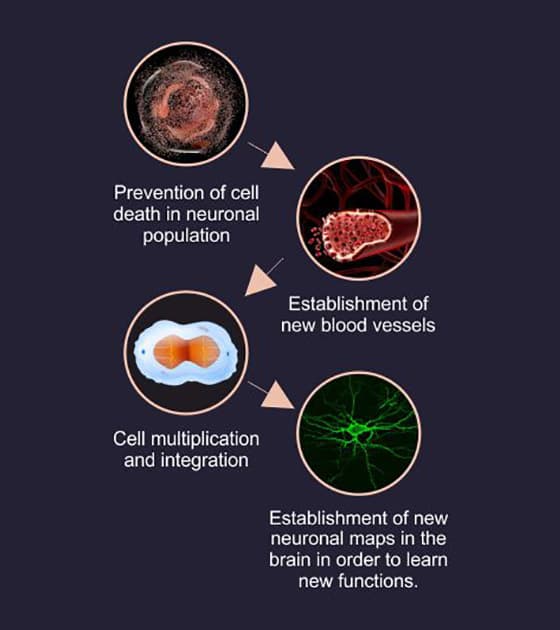
Regenerative Medicine for Intellectual Disability in India, involves autologous bone marrow derived mononuclear cells (BM MNCs) for transplantation. The transplanted bone marrow-derived cells have the ability to migrate to the area of the damaged tissue in the brain and help repair the damage in those affected areas. The effects of damage in those areas are reduced by the release of several trophic factors. These bone marrow-derived cells then also differentiate into several cell types of the nervous system such as oligodendrocytes, glial cells and other cells of the nervous system.
The main mechanisms that help tissue repair and regeneration include:-
Prevention of cell death in neuronal population
Establishment of new blood vessels
Cell multiplication and integration
Establishment of new neuronal maps in the brain in order to learn new functions.
This repair and regeneration of the bone marrow-derived cells in the damaged tissue, restores activity in the affected area, which translates into clinical improvements. bone marrow-derived cell treatment for Intellectual Disability in India, can thus, prove to play a great role in improving the overall quality of life. Autologous BM MNCs also, do not show any adverse side effects and do not face any immune rejection. They are obtained from the same patient and thus are free of the ethical issues surrounding the use of bone marrow-derived cells.
STATISTICS OF OVERALL IMPROVEMENTS IN PATIENTS AFTER REGENERATIVE MEDICINE
93% patients showed symptomatic improvement
Improved attention span, concentration and memory
Faster processing and learning
Reduced hyperactivity
Improved academic performance
Improved activity and understanding of responsibility
Better understanding of mathematical calculations calculator use
Improved confidence
Improved communication & social skills improve
Relatively increased independence
Improved self hygiene habits and communication of bathroom needs
Improved quality of life.

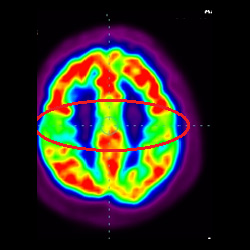
Pre Regenerative Medicine for Intellectual Disability PET CT scans showing blue areas with decreased metabolism

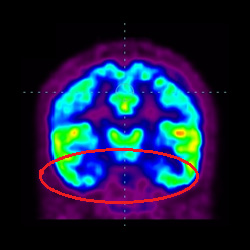
Pre Regenerative Medicine for Intellectual Disability PET CT scans showing blue areas with decreased metabolism

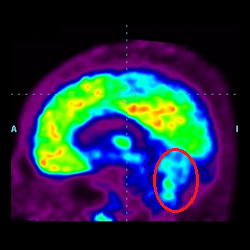
Pre Regenerative Medicine for Intellectual Disability PET CT scans showing blue areas with decreased metabolism

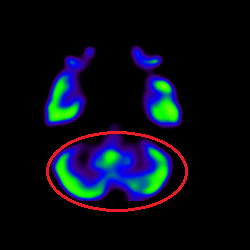
Pre Regenerative Medicine for Intellectual Disability PET CT scans showing blue areas with decreased metabolism

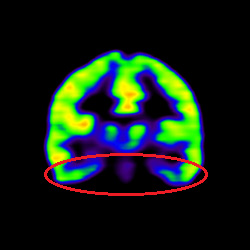
Pre Regenerative Medicine for Intellectual Disability PET CT scans showing blue areas with decreased metabolism

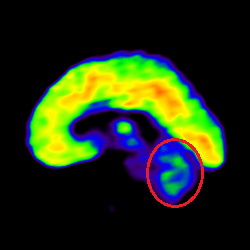
Pre Regenerative Medicine for Intellectual Disability PET CT scans showing blue areas with decreased metabolism
An Intellectual Disability treatment plan after bone marrow-derived cell treatment in India cannot be exactly the same for all ID children. Whether traditional, or unconventional, they have to be personalised. This personalisation can only be achieved with a thorough evaluation of the child. However, it is imperative that the following therapies be followed religiously after cell therapy, for the best possible outcome!
Intellectual Disability is referred to an injury in overall mental ability that affects the daily activities in three major domains:
The conceptual domain includes skills in language, reading, writing, math, reasoning, knowledge, and memory.
The social domain refers to interpersonal communication skills, empathy, social judgment, the ability to make and retain friendships, and similar capacities.
The practical domain centers on self-management in areas such as personal care, job responsibilities, MONEY management, recreation, and organizing school and work tasks.”
Diagnosis can be taken upon clinical improvements and standardized intellectual testing. An IQ score of 70 or below is still regarded so as to make an analysis of Intellectual Disability and may call for an Intellectual Disability Treatment.
The diagnosis can be made after right after infancy right after the child starts going to school.
Parents can seek an early intervention as soon as they start noticing that the young child has a delayed development as compared to other normal children or siblings. As a parent, you must resort to quick intellectual disability treatment and guidance before the child reaches an advanced level of development. The first 24 months of a normal child is said to have incredible and swift growth and development.
Intellectual Disability does not decrease a normal life span. A lot is dependent on the reasons, seriousness of intellectual disability, associated medical problems and the level of care taken.
Before planning on taking the next step, it is important that you go for genetic counseling. This will depend from case to case.
Yes. The most common disabilities include autism, cerebral palsy, hyperactivity and epilepsy.
Yes there are some medications that are available for reducing symptoms visible in children with intellectual disability. But there are no exact medicines available yet for Intellectual Disability Treatment
A child with an intellectual disability needs specific therapists and specialized training and one to one attention. An intellectual disability treatment will include the following:
Special educators make programs specifically designed to address each individual child’s special needs by modifying teaching methods and the child’s environment.
Occupational therapists focus on teaching skills in order to make the children capable of carrying out his/her basic activities of daily living. The main goal here is to make the child independent and take care of him without any assistance.
Speech Therapists guide them on language components which include manipulating sounds, using minimal units of meaning, sentence construction as well as social aspects of communication. It has been found that many children with Intellectual disability experience trouble articulating speech due to which it affects their communication skills and forming friendships.
Psychologists play a significant role in terms of assessment and classification of intellectual disability. Assessment includes carrying out a formal standardized intellectual testing (IQ test) on the child and counseling the parents accordingly. Parents need to realize the capacity or potential of their child and encourage him/her accordingly taking both his strengths and weaknesses into consideration.
Yes. There are different levels of Intellectual disability which fall into mild, moderate, severe and profound. An intellectual disability treatment plan depends upon the severity of the diagnosis.
Mild intellectual disability
Children with a mild intellectual disability can normally learn reading, writing, and math skills between the third- and sixth-grade levels. After reaching a period of adulthood, they may have jobs and live independently.
Moderate intellectual disability
Children with moderate intellectual disability need to learn some basic reading and writing but require supervision and monitoring in day to day living.
Severe intellectual disability Children with a severe intellectual disability may learn self-help skills and routines even if they are not able to read or write.
Profound intellectual disability Children with profound intellectual disability need thorough support for the rest of their lives. They are reliant on their family for all activities of daily living.
Yes, it is important that the child should be sent to a special or a normal school depending on the seriousness of his mental disability. It is essential that the child should be exposed to a learning environment, peers of his age and capabilities from a young age itself. Special schools offer classified education, addressing particular needs. The student to teacher ratios are held in low reserve depending on the children’s needs. There are special schools that offer alteration in order to make the learning process simpler.
The biological task of bone marrow-derived cells is to repair and regenerate damaged cells. cell therapy for intellectual disability exploits this task by executing these cells in high concentrations directly in and around the damaged tissue, where they move its self-healing and restoration forward.
There are certain areas that cause mental damage found in children with intellectual disability and can be seen on the PET CT Scan brain. bone marrow-derived cell treatment for intellectual disability works on these affected areas and help to improve the proper functioning of these areas.
Bone marrow transplantation has effectively been used for inherent disorders of blood, such as sickle cell anemia, thalassemia, as well as cancers such as leukemia. Since our bone marrow-derived cell treatment for intellectual disability uses autologous cells, there are no major ethical concerns. Ethical concerns are mainly based on the use of embryonic bone marrow-derived cells which we do not use.
cell therapy for intellectual disability is invasive and rationally safe. Till date, there is no such patient that has shown any neurological weakening related with the cell therapy. Some side effects like headache (spinal headache) lasting 3-4 days which is generally self limiting, neck/back pain, vomiting, some mild rash or pain at the site of bone marrow aspiration/stem cell injection may occur. However, like any other medical or surgical treatment unexpected complications are always a possibility. These complications may be related to the medicines given, the stem cell procedure, anaesthesia, and the rehabilitation or to any of the pre existing medical or neurological conditions.
In case of children with seizures, or previous history of seizures or an abnormal EEG, a small possibility of triggering seizures can be there. However, proper antiepileptic cover/drugs could circumvent this problem.
Maximum improvements are seen around 3-6 months after cell therapy for intellectual disability. However, in many patients there are slow progressive improvements that continue for several months or years later. Most patients show immediate improvements even before the discharge.
The decision to do the second round of cell therapy for intellectual disability is taken after studying the progress and improvements of the first therapy. If the patients show positive improvement, then the case is reviewed by the entire medical and rehabilitation team. Certain special imaging tests like PET CT Scan of the brain would be repeated and then a second bone marrow-derived cell treatment for intellectual disability may be optional. This can be done anytime between 3-6 months of the first cell therapy for intellectual disability
We will study what other medications the patient is already on. In most cases, we do not put an end to any already going on treatment. However this is decided on a case by case basis. Before we start with the intellectual disability treatment, please inform us about any medications you are already taking.
We have had experience in bone marrow-derived cell treatment for intellectual disability with over 500 patients. They were executed with autologous bone marrow-derived cells, intrathecally. On further study, maximum of the patients improved in various areas of symptoms such as cognition, social interaction, communication, toilette training, self care, home living and so on. Their schooling improved and their learning ability improved, so the mental development starts to become age suitable. This in turn eases the pressure of the caretaker and the family. Overall mental development is improved and is recorded as improvement in IQ.
